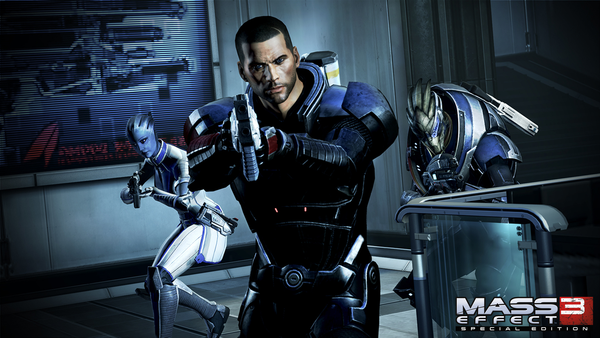5 Video Games That Made Me A Governor And Why It’s Awesome
In this post, we're discussing five Role-Playing games with "city-building" aspects that allow you to rule your land. We also discuss why it's incredible.

Author's Note: This article was originally published on Aug 5th, 2019. It's been edited and republished.
Since the dawn of Role-Playing games, I have always loved the limited freedom they allowed. You could start a conversation with a random stranger and not know it would lead to a quest storyline.
That’s a big reward for players who decide to explore. But some games went further than that and allowed you to own a castle and manage staff.
I loved these games more because they allowed me to rule. Especially since I have a pet peeve to select a Highborn origin for my characters. They are usually Dukes, Princes, bishops, Lords, or other noble titles.
In recent years, I have seen only one game that did this beautifully: Pathfinder: Kingmaker. I love that game! We will talk about it later.
Let’s discuss those games and why RPG games should adopt this mechanic more. Also, this is a spoiler alert for any games listed below!
Dragon Age: Origins
Dragon Age: Origins had everything I wanted. It allowed me to be of noble birth, made me watch my parents die, and made me think I had become the head of the house. NPCs I encountered throughout the land highlighted my origins in conversation. I even became a King-Consort. (You can become a Queen-Consort if you're playing a female)
It was a game well done. And I miss it so much! Why miss it instead of playing it again? We’re so used to the new graphics that such a game wouldn’t hold my attention for long.
Maybe one day I’ll best this aspect of myself and allow myself to enjoy it like I used to. Or perhaps EA will create a remake of it for modern audiences.
Dragon Age 2
Dragon Age 2 is only briefly mentioned here. I didn’t quite connect with this game. I liked the story as much as I could. There were plot holes, and the graphics were way better than in Dragon Age: Origins. It seemed at times that graphics was the only thing this game was good at.
But, it did allow me to inherit my mother’s house (after they murdered her and made my companions console me). And, above all, it made me the Champion of Kirkwall.
People respected me; I was wealthy and witty. I could have become The Viscount of Kirkwall if I had sided with the Templars during the last chapters of the game. But that idea was short-lived. Dragon Age 2’s ending ensured I was viscount only briefly before I disappeared.
It was good while it lasted.
Neverwinter Nights 2
Neverwinter Nights 2 allowed me to become one of The Nine, an archetype class of Faerun. I received land and a nobility title. I got both by becoming a Knight and the Captain (or Knight-Captain) of Crossroad Keep.
I loved this game so much!
The Mask of The Betrayer DLC let me continue the journey of my player character. I was completely removed and far away from Neverwinter. That DLC was a darker story. I wanted to continue what I started in Crossroad Keep. See it return to its former glory. The game took a different path.
Then, a newer expansion — Storm of Zehir — let me create a new PC and become a merchant-adventurer on the Sword Coast. I wasn’t my previous player character, and I wasn’t a noble. But I still had some power and resources. I felt I could do something to shape the world around me, and it felt incredible.
Dragon Age: Inquisition
Inquisition is by far the game that let me influence the world the most. I was the Inquisitor. I could build camps wherever I wanted, and capture keeps all around while managing a castle of my own. The game even offered the ability to judge NPCs. A step further in letting you rule.
I definitely held sway with the world. I felt in charge. The ending took away most of that by taking the Inquisition, as I knew it, away from me.
But, for better or worse, the Inquisitor could shape the world. They could do much to change how it ran through simple mechanics.
Whenever I built a camp, I saw my troops fighting beasts, guarding, or helping people who lived nearby.
As far as I remember, I didn’t get a levy, but I could do much to gain money, and even at some point, I could buy influence with money.
I can’t emphasize enough how much I wait for Dragon Age 4.
Pathfinder: Kingmaker
A relatively new game in my Steam library. This game started as a party adventure. I knew there would be some governing involved, but I didn’t know when it would come. I could spend hours doing stuff without advancing the plot. I had many, many days before I was going to lose my mission.
Then, when it happened, I didn’t know what to feel. I worked for this title, but then I had to work at my land. Was I a real lord? There were many missions to complete, and I could also visit my town and feel the human connection to it. It was an incredible new experience that no other game had offered before.
Even Neverwinter Nights 2, which I mentioned above, didn’t let me rule anything besides my keep. The things that happened in the surrounding lands were a bit vague.
Something about the time limit for each mission was a bit stressful, but I loved the challenge.
Also, disclaimer: I have not played this game for over six months. It’s possible I’m referring to an older version, and today’s patches changed some things.
Regardless of game mechanics, I loved that I could once again influence how the world ran. I felt I was in charge — this time more than ever. Being the boss wasn’t only about power and influence. It was also about responsibility.
Game Developers — Let Your Players Run The World
A player wants to feel in charge. They want to feel they can influence the world.
The story and characters in an RPG are the most important things. No one debates that. But, if your game takes you through a significant role of being a noble — let the players feel that. Let them rule. Let them change the world in other ways than fighting and killing monsters or bad guys.
Let them change the world by exercising their highborn responsibilities.
I promise I’ll be an early adopter.



